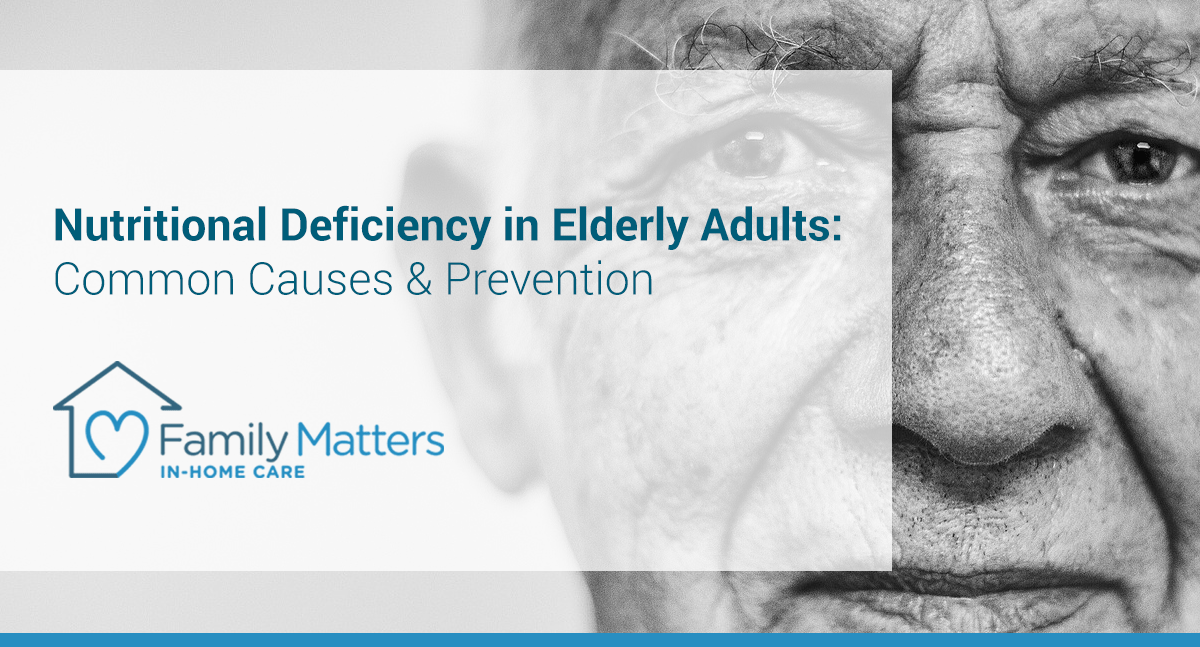
Nutritional Deficiency in Elderly Adults: Common Causes & Prevention
Our bodies need a certain balance of nutrients to function at their peak, and as we move from infancy and childhood to adolescence, adulthood, and eventually old age, our nutritional needs can change. At any age, it can be difficult to get all the nutrients we need from food alone, and many of us get stuck in a rut with food, eating the same things over and over again, according to availability, preference, and so on.
As we age, however, nutritional deficiencies can become more pronounced, due to a number of factors. If you’re worried about nutritional deficiency, here are a few things you should know about common causes, as well as possible prevention.
Common Causes of Nutritional Deficiency
As you get into your senior years, you may start to notice that your appetite wanes, along with your activity level. In addition, many retirees are living on fixed incomes, and this can alter purchasing habits where food is concerned, potentially reducing nutritive value. Some medications also make it more difficult for the body to uptake certain essential vitamins and minerals. Plus, you just might not have the same energy and motivation to get to the grocery store and plan and cook balanced meals.
In truth, our bodies tend to lose some capacity to uptake certain vitamins and minerals on their own as we age. Calcium is a big one as it supports strong, healthy bones. We can start losing bone density as early as the age of 30 without proper calcium intake, and many people are giving up dairy products that are the main source of calcium, without finding ways to replace them in their diet. This is one reason why osteoporosis and slip-and-fall accidents are of such great concern to the elderly.
Seniors may also have trouble getting adequate vitamin B6, vitamin C, vitamin D, vitamin E, and magnesium, just to name a few. Altogether, these factors can lead to serious concerns about nutritional deficiency in elderly adults.
Prevention
The best place to start is by changing the way you eat. Take a look at your typical diet and assess the balance of carbs and fats to fruits and vegetables. Chances are good you need to decrease the former in favor of increasing the latter. In addition, you should probably talk to your doctor about adding daily supplements. This medical professional should be able to help you understand which nutrients you need and which may be lacking so that you can supplement your diet.
The most important thing for many seniors, however, is getting help. If you have friends or family that are willing and able to help with grocery shopping, food prep, and so on, it could make a big difference. For seniors without this option, other resources exist.
For those reaching a point where they’re unable to adequately care for themselves, it may be time to consider an option like in-home care. Caregivers are not only trained to assist elderly when they are ill or injured, but also to help with tasks like nutritional meal preparation, and this can make a huge difference when it comes to getting proper nutrients and remaining strong, healthy, and active.
If you or your family member is considering in-home care as part of a plan to age in place, contact Family Matters In-Home Care today for a free consultation. Our team is dedicated to supporting your family and helping older adults enjoy life in the comfort of their own home for as long as possible.
Some of the services offered by Family Matter In-Home Care include: Alzheimer’s & Dementia Care, Bed & Wheelchair Transfer Assistance, Companionship, Housekeeping & Meal Preparation, Personal Care, Recovery Care, and Transportation.
